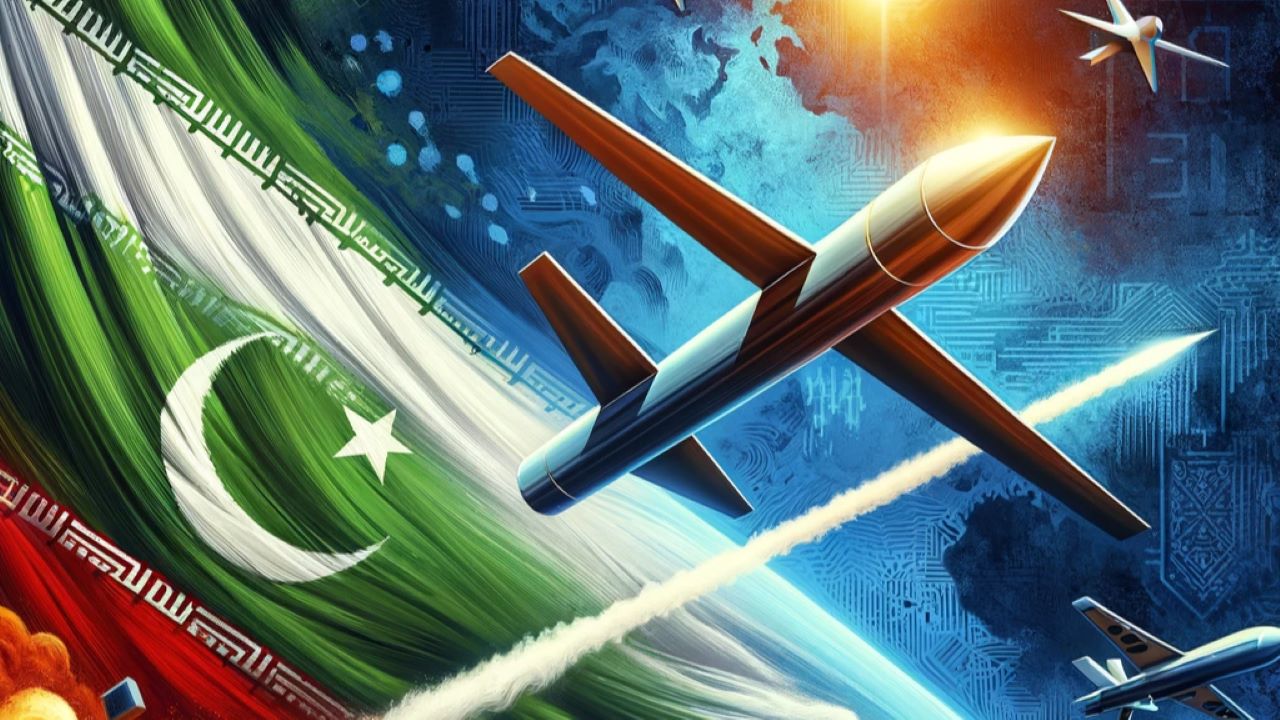Iran’s Strike on Pakistan and In a Bold Move, Iran Admits to Missile and Drone Attacks in Pakistan’s Balochistan, Sparking Diplomatic Crisis and Regional Concerns.
Islamabad, Pakistan: In a startling development that has heightened tensions across the Middle East, Iran has admitted to carrying out a missile and drone attack on western Pakistan, a move that marks a significant escalation in regional conflicts. The attack, which occurred in the Balochistan province of Pakistan, resulted in tragic casualties, including the death of two children and injuries to three others.

A Strike on Jaish al-Adl: Iran’s Foreign Minister, in a statement from Davos, disclosed that the operation targeted Jaish al-Adl, a group Tehran labels as an “Iranian terrorist group” operating within Pakistan. This admission has led to a severe diplomatic backlash, with Pakistan recalling its ambassador to Iran and barring the return of Tehran’s envoy.
Pakistan’s Outrage and Iran’s Justification: Islamabad has condemned the attack as “illegal” and warned of “serious consequences”. In contrast, Iran’s Foreign Minister Hossein Amir-Abdollahian insists that the operation did not target Pakistani citizens but was specifically aimed at combating Jaish al-Adl militants.
Regional Implications: The incident in Balochistan is not isolated. Earlier in the week, Iran carried out similar operations in Iraq and Syria, targeting various militant groups. This pattern of strikes indicates Iran’s broader strategy in the region and its willingness to exercise military power beyond its borders.
Domestic Pressures in Iran: These aggressive moves by Iran come in the wake of the country’s worst domestic terrorist attack since the Islamic Revolution, a bombing in Kerman that claimed 84 lives. Analysts suggest that these foreign operations serve as a response to internal pressures and a demonstration of Iran’s military capabilities.
Iran-Pakistan Border Tensions: The Iran-Pakistan border has long been a hotbed of security concerns, with both nations accusing each other of harboring militant groups. The recent strike in the Sabz Koh village, close to the border, is an unprecedented escalation in this long-standing tension.
The Baloch Factor: The Baloch tribes, residing in the border region and often involved in smuggling activities, find themselves caught in the crossfire. The Sunni Muslim Baloch minority in Iran has long complained of discrimination by the Shia-majority state, adding a complex layer to the regional dynamics.
Diplomatic Crisis: The attack has triggered a diplomatic crisis between Iran and Pakistan, two countries that have historically maintained a delicate but cordial relationship. This incident coincides with a meeting between Pakistan’s Prime Minister and Iran’s Foreign Minister in Davos, adding to the complexity of the situation.
Global Reactions: The international community, including China, has urged restraint and warned against actions escalating tensions. The U.S. and the U.K., having launched airstrikes on the Houthis in Yemen following their attacks on commercial shipping, are closely monitoring the situation.
Looking Ahead: Experts believe that while the diplomatic crisis is severe, both nations are likely to avoid further escalation. However, the incident has undoubtedly strained relations and raised questions about future cooperation and stability in the region.
Iran’s Regional Ambitions: Iran’s recent actions, including strikes in Syria, Iraq, and now Pakistan, reflect its ambition to assert regional influence and respond to threats against its interests. However, these actions risk further destabilizing an already volatile region.
Impact on Local Populations: The strike’s impact extends beyond political and military realms, affecting local populations in Balochistan. Communities on both sides of the border, already facing issues of discrimination and deprivation, are now exposed to the direct consequences of regional power plays.
Terrorism and Counterterrorism: Jaish al-Adl’s designation as a terrorist group by both Washington and Tehran adds another layer to the conflict. Iran’s targeting of this group on foreign soil raises questions about the norms and ethics of cross-border counterterrorism operations.
The Road to De-escalation: As tensions simmer, the international community’s role in mediating and de-escalating the situation becomes increasingly crucial. The incident serves as a stark reminder of the fragile nature of peace and security in the Middle East.
The strike on Pakistan by Iran marks a new chapter in the complex tapestry of Middle Eastern geopolitics. As the situation unfolds, the world watches closely, hoping for a resolution that brings stability to a region long plagued by conflict and unrest.



